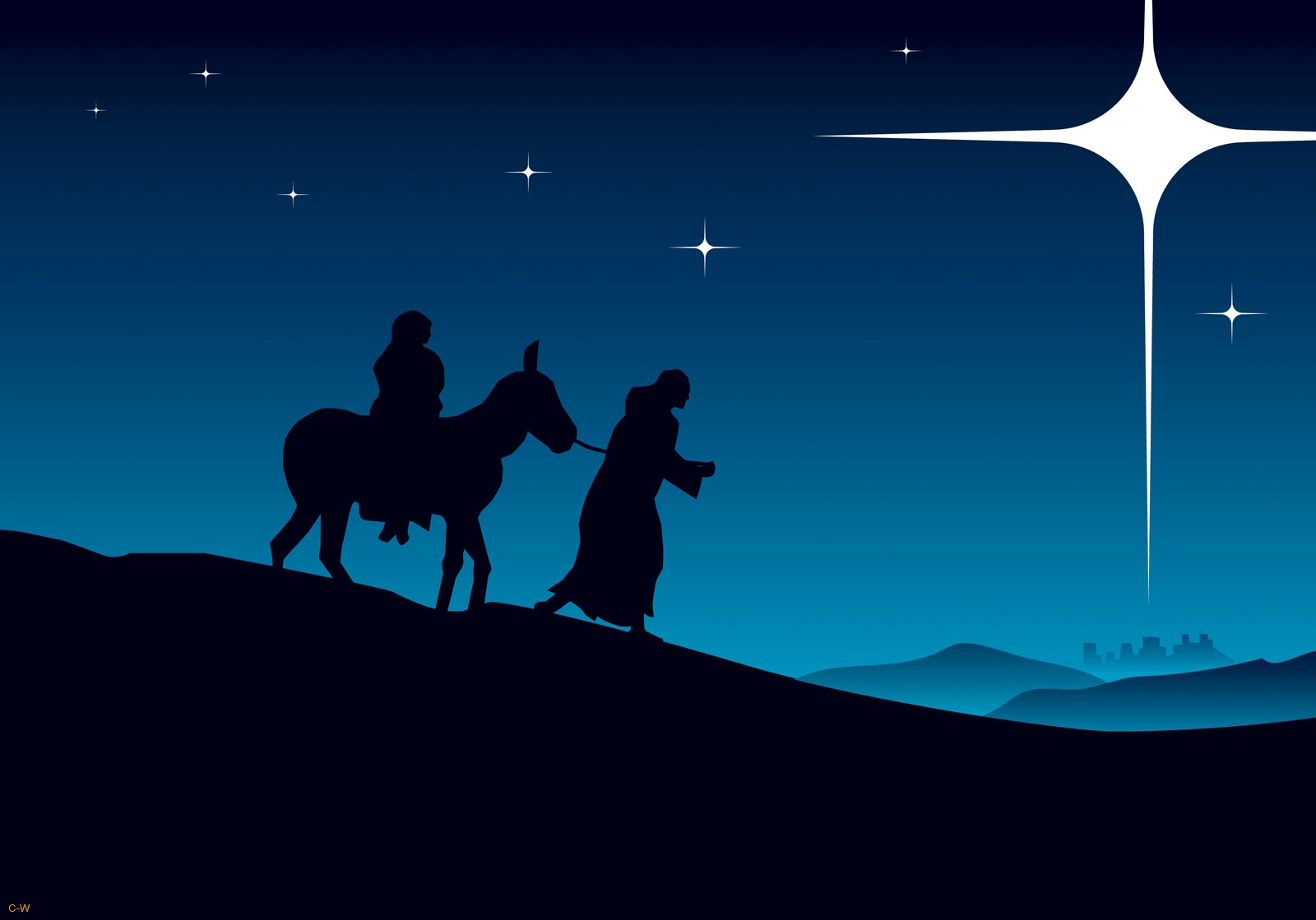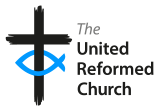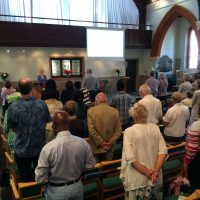Sermon given 7th Jan 2024, Revd Susan McCoan
Mark 1:4-11
Here we are, at the start of a new year – a few days in now, but this is our first service of 2024. Maybe you have made resolutions; maybe you have kept some of them. Maybe you have plans, or hopes, for what this year will bring. But in what seems like an increasingly uncertain world, even our firmest intentions, even our best-laid plans, can be upset.
So how are we to approach this year? Today we have a bible reading about the baptism of Jesus, and I’m going to look at what we might learn from the way Jesus approached this new phase in his life. Let’s start, though, by thinking about Jesus before he went to be baptised.
We can assume that, at some point in his childhood, Jesus was told, by Mary and Joseph, some of the things that were said about him before and around his birth. He would know, for instance, that he would be great, called ‘Son of the Most High’, and would inherit the throne of his ancestor David; that he was a Saviour who is Christ the Lord, and that he was the King of the Jews. One way or another, Jesus has grown up knowing that he is destined for greatness.
Jesus, however, has no connections who are likely to make this possible. He is not related to any current kings or emperors; he doesn’t have friends in high places who can make introductions or pull strings on his behalf. He has no job description for how to be a Messiah.
The one connection Jesus has, outside his immediate family and neighbours, is John the Baptist. Their mothers are related; it’s likely that Jesus has been told some of the things that were said about John before his birth. When word gets to Galilee of a preacher in the wilderness, who looks like Elijah, who fits the picture of Isaiah’s prophecies, Jesus puts two and two together. Like everyone else, Jesus understands John’s preaching as a sign of the Messiah coming; unlike everyone else, Jesus knows that this sign applies to him personally. This is his signal, to move into a new phase of his calling. Out he goes, along the Jordan valley, to look for the baptiser at work.
I am convinced that at this stage Jesus has no idea what will happen when he finds John the Baptist. All he knows this is what he has to do now. This is God’s call, and in obedience to that call, Jesus will turn up and show willing.
This is, I think, the first lesson to learn from Jesus and his baptism. His preparation for healing and teaching does not consist of a detailed schedule, a carefully mapped-out progression. His preparation has consisted of staying close to God, in faithfulness and prayer, and then simply taking the next step. He walks into the unknown, fully trusting that he is doing God’s will.
Soon enough, Jesus sees crowds gathering, and begins to hear John’s preaching. It’s stirring stuff. He is calling people to repent, to acknowledge their need of forgiveness – quite a challenging message, especially when we remember these are people who would have considered themselves already faithful to God. John the Baptist is also talking about the ‘one who is to come after him’ who is so much greater than he is. And here is Jesus, hearing those words, knowing or at least strongly suspecting that John means him. But then, what is he going to do about it? He can hardly barge to the front of the crowd and say, ‘I think that’s me!’
What he does, is to line up with the other people there for baptism.
There is a real power in sacramental actions – in visual symbols, or physical actions, that represent something not visible. They speak to us in ways that words cannot. And because they speak directly, they can say the things we each need to hear. For the vast majority of the people there, the baptism offered by John was a sign of renewal – of washing away their old attitudes, their hardened hearts, and making a fresh start with a closer relationship with God. For Jesus, who already had the closest relationship with God, baptism was a sign of submission, of surrender, letting go of his ego and any desire for self-preservation. He goes under the water, giving himself totally and completely to God’s calling.
And then he comes up. We won’t leave Jesus holding his breath. But let’s pause and think about the second lesson we might learn from the way Jesus approaches baptism, which is to accept the grace of sacraments.
The two sacraments in the Reformed tradition are baptism and holy communion. Baptism is a one-off, but we have communion every month – often enough for it to become so familiar that we don’t always notice what’s happening. So let’s look briefly at the communion service, and why we do what we do.
We always include the story of the last supper, and Jesus sharing bread and wine with the disciples. It’s a reminder that this is not something dreamt up by the church; this is a gift from Jesus to be used whenever his followers gather, to remember him when he is not there, to strengthen the bonds of fellowship between them, to speak to them in the times, especially after the crucifixion and resurrection, when they are beyond words to describe what is happening.
We have a prayer of thanksgiving – as an expression of gratitude, and because Jesus gave thanks before he broke the bread. This is God’s doing, not ours.
At the end of that prayer, we call on the Holy Spirit to be present, not just in the bread and wine but in our sharing. It’s the whole process of doing this together, with the Holy Spirit, that makes this special.
When we’ve done that, I will take the bread, lift it up, and break it. Sometimes churches try to be helpful and cut all the bread into little pieces, but it matters to break a piece of bread. Again, because Jesus did it; because, as Jesus says, it is a symbol of his broken body; because the breaking reminds us of our own brokenness, and how Jesus shares in that. One of the most powerful communion services I’ve ever been to was in a hospital, when I was shadowing the hospital chaplain; there were people with wheelchairs, bandages, or drips – all visibly broken bodies.
I lift up the wine, too. It represents the blood of Jesus as he died; it echoes Old Testament practices of sealing a promise by the blood of sacrifice; it has echoes, too, of the Garden of Gethsemane, and Jesus saying, ‘If it be your will, let this cup pass me by’. We drink to share in the suffering of Jesus, as he shares in ours.
Churches have different practices in the way they share the bread and wine. Here, we eat the bread as we are served, remembering that this is a personal gift to each of us; then we drink the wine at the same time, remembering that we are all one in community.
This is a lot of explanation, for something that I’ve just said works beyond words. I’m saying it now, so that when we come to the actual communion, it can speak for itself. And maybe now it can speak a little more deeply.
Meanwhile, back at Jesus, coming up out of the water after his baptism. This is the most wonderful moment: as he comes up, the heavens are torn open, the Spirit descends on him like a dove, and a voice from heaven says, ‘You are my Son, the Beloved; with you I am well pleased’.
Jesus went under the water in total submission to God; he comes up again to this total affirmation. You are my Son. If you had any doubts about your calling, doubt no longer. You are beloved. All that you will do will be driven by love and surrounded in love. With you I am well pleased. Or, I delight in you.
This is the third lesson to learn from Jesus at his baptism: to dwell in the affirmation of God. I do some teaching on the Church Leadership Programme, and we use Mark chapter 1 as one of our key texts. We invite the participants to reflect on their own call to ministry or church leadership in the light of this verse, to hear God saying to them, You are my beloved son; you are my beloved daughter; I delight in you. I think this applies to all of God’s people, leaders or not – we are all called to serve the work of God’s kingdom, and it’s a reminder that all our calling, all our service, is a response to love.
So we have three things: not to wait for certainty, but to walk into the unknown in faith; to accept the grace of the sacraments, and allow God to speak to us through them; and to keep dwelling in the love of God.
My wish for you, for this coming year, is that all your dreams come true, all your plans come to fruition, all your resolutions, if you’ve made any, pay off, and that you have many joys. But whatever happens, whatever life throws at us, may we all stay close to God, and may we be ready at all times to take the next step, to move forward in confidence, grace and love.
Amen.







